Celebrating Christ In The Mountains Of Ifugao
Fr Gil Rochar Pancho-Dulay, SVD
The author, an SVD priest ordained in December 2008, is from Baybay, Bulan Sorsogon. He is currently parish priest of Our Lady of the Assumption Parish, Salegseg, Balbalan, Kalinga, and director of St Theresita’s School there. Here he tells of his experience when he was assigned to the Mountain Province.
The thought of the Cordilleras haunted me through my childhood and seminary days, even though one of my motives for joining the Divine Word Missionaries (SVD) was to be assigned to a foreign mission. Before ordination we were asked to write our preferred countries of assignment. I wrote Mexico as my first choice, China as my second and lastly, the Philippines. I hadn’t specified any of the three SVD provinces in the Philippines but our prefect insisted I do so, in case my other first two choices would not materialize. Mesmerized and enchanted by the beauty and culture of the Cordilleras, I immediately wrote ‘Northern Province’. It’s the place that captivated my adventurous spirit one summer when I was assigned to Calanasan, Apayao.
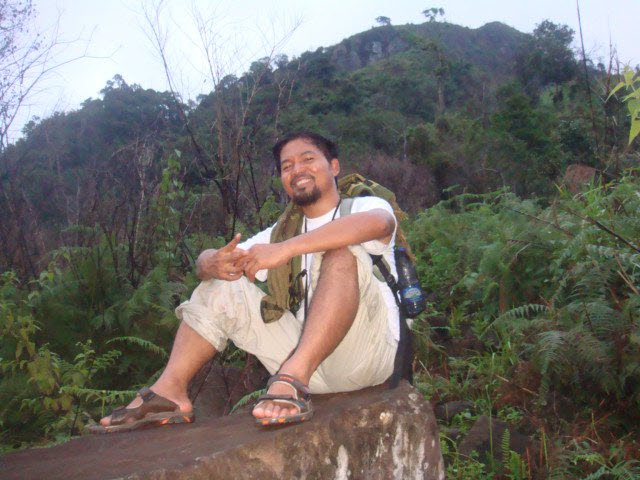
At first I was dismayed by the result of my application because neither of my first two choices were approved. I accepted that maybe the Lord wanted me to be rooted first and learn about my identity as a Filipino before being sent outside. After ordination to the priesthood, I was sent to Claveria, Cagayan, for more than a month to learn how to say Mass in Ilocano. I had been told that I would be assigned to Sadsadan, Bauko, Mountain Province, in the Apostolic Vicariate of Bontoc-Lagawe, as assistant priest to Fr Bong Garay, SVD. I arrived there in July 2009.
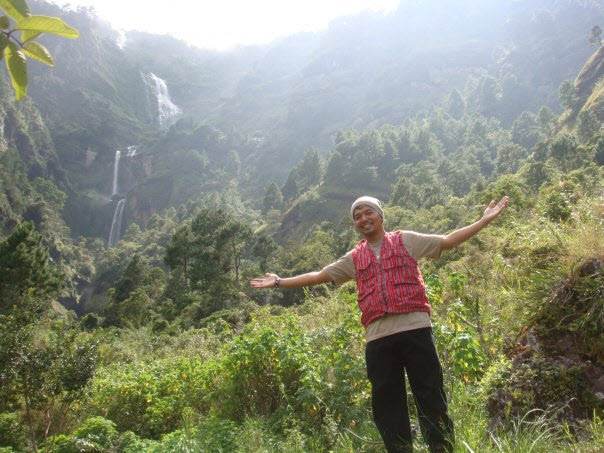
I enjoyed my stay with the Kankanaey people, learning and appreciating their culture. I once said to them in my homily during the Indigenous People's Sunday, ‘Be proud of being an Igorot, be proud of being a Kankanaey . . . your culture is God's greatest gift to you and to the Philippines as well. I am very fortunate that I was able to see, feel and live the very life of our forefathers, of which the Spanish Conquerors had deprived us ‘lowlanders’ due to the massive Christianization that brought havoc to our primitive culture.’ Though I stayed there for fewer than nine months, I was really thankful to the people because they had taught me how to appreciate more my being a Filipino by being rooted in my culture. It boosted my missionary spirit to reach out and learn the diverse culture of the Cordillera people, seeing it as God's greatest gift to us.
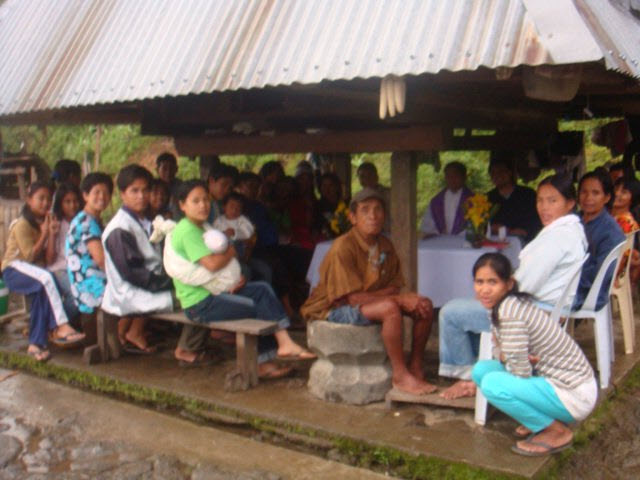
I was sent to the Our Lady of Assumption Mission Station, Mayoyao, Ifugao, to replace Fr Romeo Benitez who had been transferred to Claveria, Cagayan. The Mayoyao Catholic Mission was established by the CICM Fathers more than 60 years ago. It is now under the administration of the Divine Word Missionaries and is comprised of 16 Basic Ecclesial Communities (BECs) and includes Assumption Academy. I try my best every month to visit all BECs for Masses, baptisms, weddings and the other sacraments. I also invite resource persons to give seminars, recollections and spiritual talks that would deepen the faith of the people.
Though all 16 BECs are dear to me, that of Inwaloy is the most special. It is the newest, composed of new converts from the Espiritistas, one of the earliest Christian sects in the Cordilleras, and Catholics from other parts of the Cordilleras who intermarried with the Ifugao people and stayed. I see to it also that I visit them outside my usual schedule to give catechesis about the Catholic Faith.
After Mass we usually share a meal prepared by the people, with pan de sal, barako coffee, organic rice of different varieties and colors, and pinikpikan native chicken. This is a time for entertaining their questions on the Catholic faith. They ask about devotion to Mary and the saints, the existence of purgatory and other topics.
Every time I go to Inwaloy, I hike with two or three companions from the poblacion. We take a 15 to 20-minute ride to Bolhe, then walk for about an hour and a half. Inwaloy is five or six kilometers from the highway. The road that we usually take is being widened. But due to the lack of budget, only two kilometers from Bolhe has been completed. Due to constant rain causing landslides and erosion, that two km stretch has been damaged. We have to pass through cliffs, climbing up and down terrain that is uneven, partly because of soil erosion caused by too much degradation of the place due to the 'kaingin system.' Hiking is challenging for me. However, hidden between the forested areas of Inwaloy is the enchanting Tenogtog Waterfalls, dropping from a height of 50 feet or more cascading through the fertile land of Inwaloy. Water is life for the people, not only for drinking, but all the more because the falls irrigates their centuries-old rice terraces.
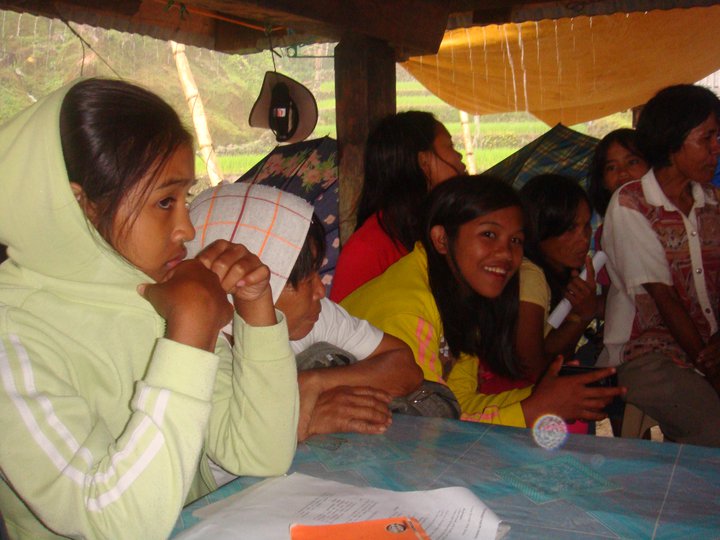
During one of my earliest visits to Inwaloy, we started Mass in fair weather when suddenly the rain poured down heavily. The wind blew so hard that we had to use the blackboard to shield us from. We also had to squeeze ourselves into a small native house. We formed a circle around the altar and continued with the Mass. The rain gave me something to ponder for my homily and I said: ‘This is a blessing for each of us. With this rain, it is good that we become closer to each other physically instead of being divided. Just like in times of crisis, this is also the best time for us to become closer to God. When we are in crisis, the more we remember Christ. And at this very moment, the more we come closer to Christ, the more we become closer to each other.’ The ceiling of hut is very low so we had to sit down during Mass. What struck me most was the opportunity that made us closer to each other.
After this Mass I had to hike for two and a half hours for another Mass, with the BEC in Maga-Magulon. I had to pass through rivers and mountain ranges with majestic and enchanting rice terraces before reaching the Chapel of St Luke at the foot of Mt Amuyao, one of the highest peaks in the Cordilleras.
The Catholic Church in Inwaloy is also experiencing persecution and harassment ever since some of the people there started converting to Catholicism. For one, the Espiritistas were angry, thinking that their members were being proselytized. The fact is that some, when they go to study in Ifugao State Univeristy (IFSU), and Catholic Universities such as St Louis University (SLU) in Baguio, get to learn, know and appreciate more the Catholic Faith.
Relations between Espiritistas and Catholics are now better. I once gave the sacrament of the sick to a daughter of a medium of the Espiritista, who was converted to the Catholic faith when she married a Catholic in the Catholic Church. Unfortunately she died a month after the wedding. I celebrated Mass at her wake with the permission of her family in their house beside the chapel of the Espiritistas.
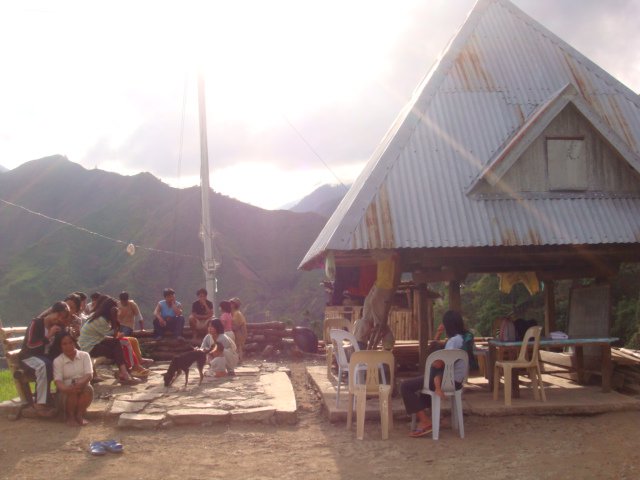
The people of Inwaloy look forward to the monthly Masses. I try to visit them twice a month and join them in their seminars if time permits. They are truly grateful for the Catholic services granted to them. Given the difficulty of gathering in their place, they wish to have a chapel where we can hold Masses, BEC seminars and other church activities. They are very willing to help but don’t have the means to buy the materials needed.
In every Mass, in every encounter, it is Christ whom we celebrate. The miracle happens every time, even to those who do not believe. The grace of a generous God continues to flow to His people through His instruments of love.
May God continue to grant you blessings. Dios Mabalos po!
You may email Father Gil at gilrochar75@yahoo.com.ph
